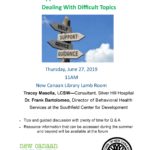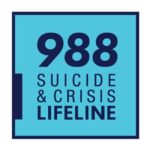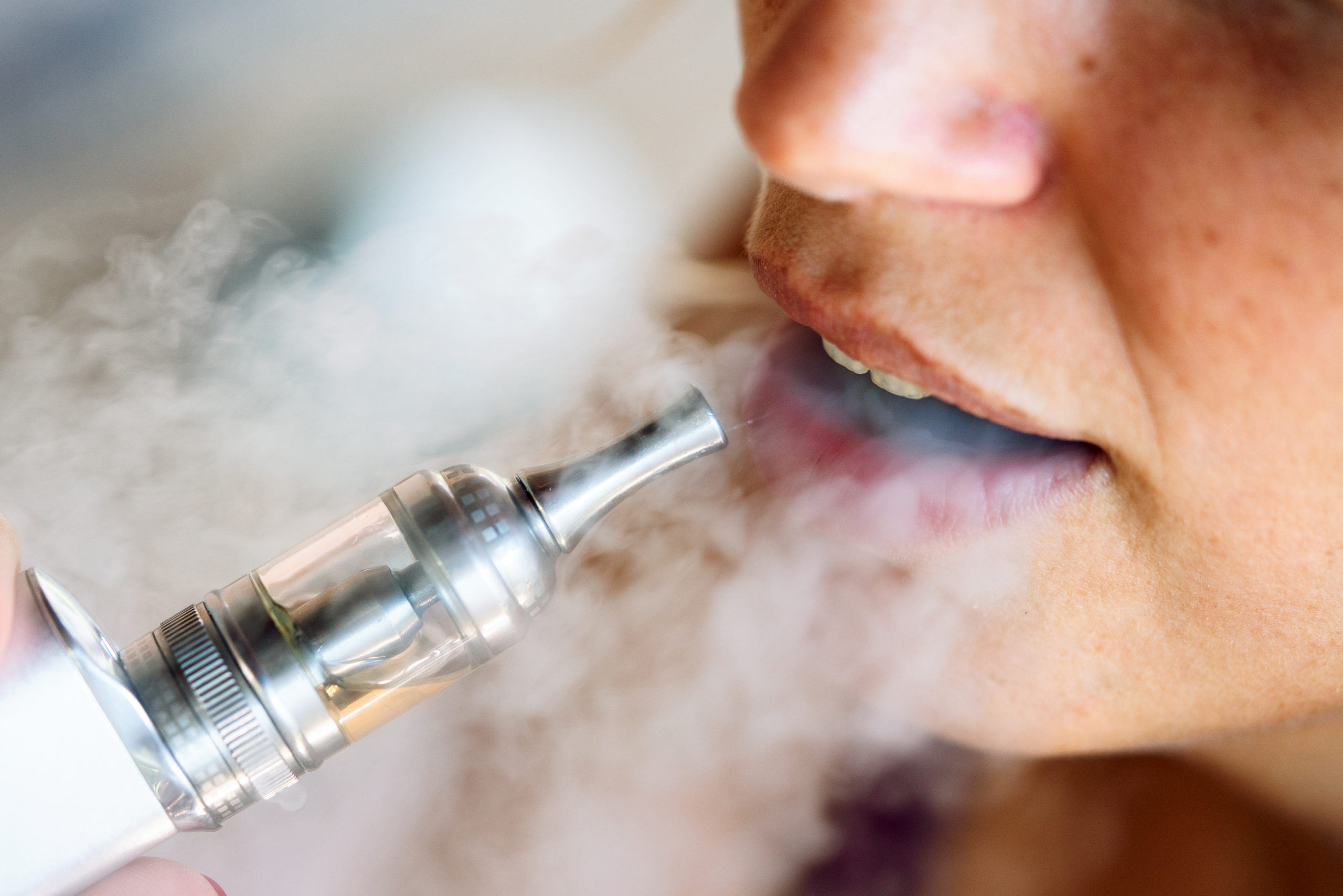Vaping
VAPING
CARES Programs & Resources

New Canaan CARES, Communities 4 Action, Daydream Communications
A child who gets through age 21 without smoking, using illegal drugs or abusing
alcohol is virtually certain never to do so.
Additional Resources

NBC News
Smoking e-cigarettes delivers cancer-causing chemicals that get into the body — and popular fruity flavors appear to be the worst. Teenagers who try vaping may be poisoning themselves with many of the same chemicals that make traditional cigarettes so deadly.

Today News
A creative new campaign is hoping to treat teenagers addicted to vaping, which the FDA now says is an epidemic. NBC’s Cynthia McFadden takes a look at how the Truth Initiative, known for its powerful anti-smoking ads, is turning its attention to e-cigs.

UT Southwestern Medical Center
People who feel supported are more likely to quit vaping or smoking for good.

Partnership to End Addiction
We break down what vaping is, why it appeals to youth, what the health risks are and what you can do to protect young people from its harms.

LifeHacker
Among teens, e-cigarettes are more popular than traditional cigarettes, and the Juul brand is currently king

Surgeon General
A more natural discussion will increase the likelihood that your teen will listen. Rather than saying “we need to talk,” you might ask your teen what he or she thinks about a situation you witness together.

Child Mind Institute
Vaping has gotten much more popular among teenagers in the past few years. Now, many more teenagers use e-cigarettes, like the brand JUUL, than traditional cigarettes. There are restrictions on the sale and advertising of e-cigarettes to young people, but many teenagers still use them.

Your Teen Magazine
Juuling leads to nicotine addiction that will have dangerous long term consequences. When we consider the number of teens who have been drawn into vaping, we are basically dealing with a new generation of smokers.

Silver Hill Hospital
Episode 13 of Straight Talk with Tracey focuses on the big topic of Vaping and Adolescence with distinguished guests Denique Weidema-Lewis, Director of Prevention at Positive Directions and New Canaan Police Officer, Jeff Deak.
Death/Grief/Loss
DEATH/GRIEF/LOSS
CARES Programs & Resources

CARES Program, Julie Hall, MBA, MS LMFT
Explore ways to navigate grief. Learn practical ways you and your child can manage anxiety and fear. Discuss the importance of self-care. A recording of this program can be viewed here.

VIDEO: How to Support Your Kids and Yourself When Dealing with Difficult Topics
CARES Program, Tracey Masella, LCSW and Frank Bartolomeo, PhD
Tips and a guided discussion on supporting yourself and your kids when dealing with difficult topics. A recording of this program can be viewed here.
Additional Resources

Child Mind Institute
In the wake of a traumatic event, your comfort, support and reassurance can make children feel safe, help them manage their fears, guide them through their grief, and help them recover in a healthy way.

Child Mind Institute
The year after a loved one has died is especially hard. The first Thanksgiving, Mother’s Day or special event like a graduation can make kids feel sad. You may think the best idea is to skip the celebration. But skipping it can sometimes make kids feel even worse. Thinking and planning ahead can make these hard days easier and even bring some joy to them.

American Psychological Association
Children’s lives are touched by trauma on a regular basis, no matter how much parents or teachers try to keep the “bad things” away. Instead of shielding children from the dangers, violence or tragedies around us, adults should talk to kids about what is happening. The conversation may not seem easy, but taking a proactive stance, discussing difficult events in age-appropriate language can help a child feel safer and more secure.

The Dougy Center - The National Center for Grieving Children and Families
When someone dies, it can feel like you’re alone in your grief. At Dougy Center, you will find support, resources, and connection before and after a death

The Dougy Center, National Alliance for Children's Grief
The Dougy Center and the National Alliance for Children’s Grief answer your frequently asked questions about grief and loss.

The Dougy Center
Grief is confusing, both for those grieving and for those who care about them. It can feel awkward, scary, uncomfortable, confusing, and surreal. Just as you might not know what to do or say, people who are grieving often aren’t sure what they need

National Alliance for Grieving Children
If you are raising or caring for a child or teen who has experienced a death, you may wonder how to share this news with them. It is perfectly natural to feel nervous or even fearful of talking with a child about this emotional topic!

The Dougy Center
If you know a child who has experienced a death, you might be wondering, “How can I help?” Here are a few basic principles to keep in mind.

The Dougy Center
If you know a teen who has experienced a death, you might be wondering, “How can I help?” Your willingness to listen to their concerns and questions, as well as be present with their thoughts and feelings, creates a foundation of safety, trust, and support.
Depression/Suicide
DEPRESSION/SUICIDE

988 - The Suicide and Crisis Lifeline in the United States
The 988 Suicide & Crisis Lifeline (formerly known as the National Suicide Prevention Lifeline) is a network of more than 200 state and local call centers funded by the U.S. Department of Health and Human Services. 988 Contact Center services include rapid 24/7 access to trained crisis contact center staff who can help people experiencing suicidal, substance use and other mental health crises, provide referrals to resources, and perform warm transfers to mobile crisis services or emergency services as needed/desired. Studies have shown that after speaking with a trained crisis counselor, most people served by the Lifeline are significantly more likely to feel less depressed, less suicidal, less overwhelmed and more hopeful.

American Association of Suicidology
Mental health, non-suicidal self-harm, and suicide themes on social media continue to be an issue both youth and adults face on a daily basis. Experts recognize that youth engagement with social media includes positive and negative aspects and our goal is to help maximize the benefits while reducing any potential harm. Parents need to have tools for these conversations.

American Foundation for Suicide Prevention
As a parent, you can approach suicide prevention in the same way you do other safety or health issues for your children. By educating yourself, you can learn what puts kids at greatest risk for suicide – and what protects them most strongly.

Child Mind Institute
If you think your child might be feeling suicidal, talk with them about it. Sometimes people are afraid that if they bring it up, it will make the child more likely to attempt suicide, but that’s not true. Showing your child that they have someone safe to talk to makes them feel understood.

World Health Organization
Communities can play a critical role in suicide prevention. They can provide social support to vulnerable individuals and engage in follow-up care, fight stigma and support those bereaved by suicide. They can help give individuals a sense of belonging and a feeling of connectedness by being part of a community. Lastly, communities can also implement specific suicide prevention strategies relevant to their situation.

Today
How parents address suicide with their children varies by age. The American Academy of Pediatrics and the American Psychiatric Association recommend that parents do not talk about tragedies until children are 8 years old. Parents shouldn’t avoid this conversation just because it is tough. It is incredibly important because of the stigma around mental health; it is a reason people give for not getting help.




